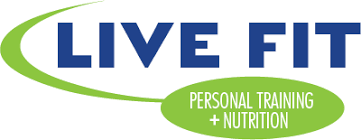Becoming A Flexitarian
What is a flexitarian?
Added to the Oxford English Dictionary in 2014, a flexitarian is a person whose diet consists of mostly plant-based foods but still contains some lean meat products.
You can be a flexitarian even if you have 2 meatless days per week or don’t consume meat for 5 days out of the week. This term is “flexible” to what you want it to be.
It is a newer diet but it can help you be healthy and lose weight as long as your portions are under control. A flexitarian lifestyle needs each individual to be in control and create your own structure and rules. The main guideline to follow is to eat less processed meat and red meat while consuming more plant-based foods.
Benefits
The flexitarian diet provides many health benefits. Below are some ways this dietary lifestyle will improve your health:
· When you start to decrease your meat consumption you start to fall into the recommended dietary guidelines. Many meat eaters eat on average 78g per day and the recommendation is to consume no more than 70g. Not eating meat for 2 days or more can get you on track in the right direction.
· Plant based diets decrease your risk of type 2 diabetes. Many studies have shown a strong link between vegan, vegetarian and flexitarian diet to decreased type 2 diabetes.
· Decrease your risk of metabolic syndromes.
· Decrease blood pressure, occurs by consuming less saturated fat from the meat products.
· Increase your macronutrient profile, giving you a more balanced diet.
· Increase your diet inflammatory index. Due to eating more fruits and vegetables you are increasing your anti-inflammatory food intake. (view the anti-inflammatory article for more detail on an anti-inflammatory diet)
· Adding more years to your life!
· Lowers your cholesterol.
· Decreases heart disease risk comes hand in hand with lower cholesterol and lower blood pressure.
· Lowers your cancer risk. More studies link this to colon cancer.
Emerging evidence shows that a flexitarian diet prevents relapse of patients with Irritable Bowl Disease and shows supportive treatment for Crohn’s Disease.
This is mainly from the dietary fiber to help lower inflammation throughout the gut.
You can still meet your protein requirements from beans, peas, and lentils. Other benefits that are in these plant-based products are iron, fiber, zinc, folate, and phytochemicals.
· Be sure to check with your doctor or our livefit registered dietitian on nutrient needs. When decreasing meat intake, most people decrease their iron, omega 3 and B12 nutrients causing them to be deficient. If you consume the proper meat products and plant-based protein products you will not need to be concerned about these deficiencies.
· Fatty fish such as salmon contains omega 3.
· Beans contain iron, eat a ¼ cup a day.
· Lean meats contain the vitamin B12.
https://www.webmd.com/diet/a-z/flexitarian_diet
https://www.ncbi.nlm.nih.gov/pmc/articles/PMC5216044/
